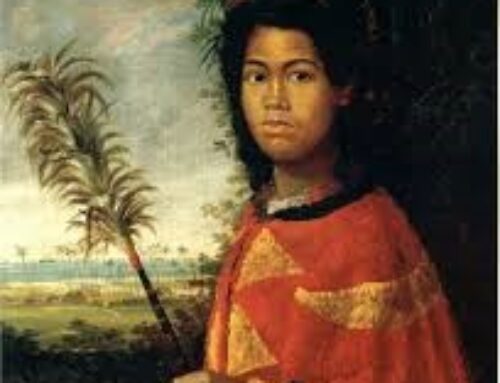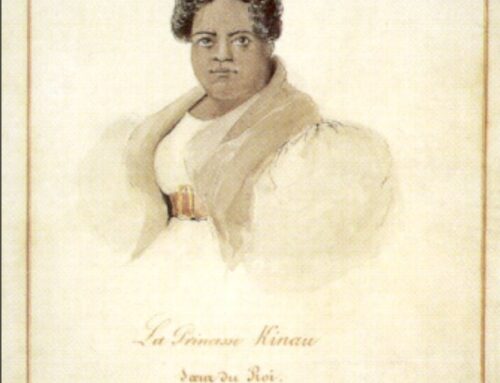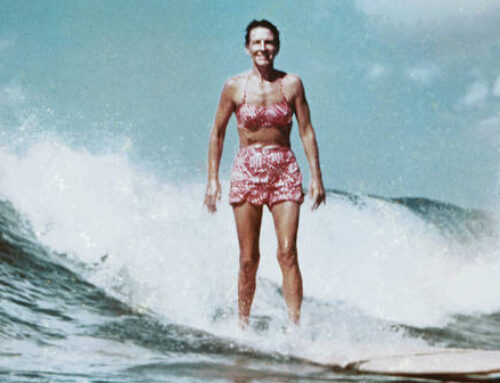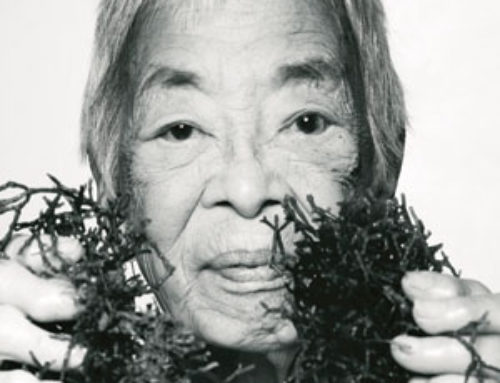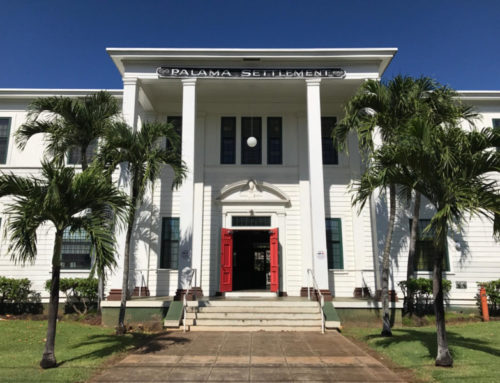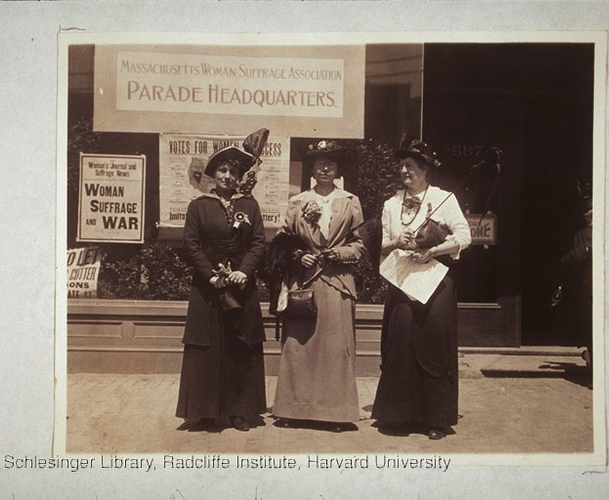
Almira Pitman, Suffragist, Speaks in Hawai‘i
By Nanette Naioma Napoleon
On January 29, 1917, Almira (Hollander) Pitman and her husband Benjamin Franklin Keolaokalani Pitman arrived in Honolulu on the S.S. Matsonia from their home in Boston. They were on a long delayed visit to the place where Mr. Pitman was born and spent his youth.
Benjamin F. K. Pitman was the son of American ex-patriot Benjamin Pitman, who became a successful merchant and sugar planter on Oʻahu and Hawaiʻi Island. Benjamin senior had married Chiefess Kinoʻole o Liliha, who controlled vast lands under King Kamehameha III in Hilo. Kinoʻole was the daughter of Chief Hoʻolulu—who with his brother Hoʻapili—secretly hid Kamehameha I’s remains after he died in 1819, an honor of great distinction.
Benjamin senior was also a founding member of the Hawaiian Club in Boston, Massachusetts. The Club was established by men with social, business and political ties to Hawaiʻi, who monitored activities in the islands in relation to their self-interests. [Hawaiian Club]
Over their six-week sojourn in the islands, Almira and Benjamin F. K. Pitman visited childhood friends, and other social elite in Hilo and Honolulu, who honored the return of this high ranking aliʻi with lūʻau and numerous other well attended social events.
During their visit, Almira noted, “a number of the Hawaiians had heard of my suffrage proclivities and had begged me to speak to them on this subject.” [Pitman]
On February 23, at the home of Mrs. Wilhelmina Dowsett, a prominent Hawaiian woman suffragist, Almira Pitman gave a talk to missionary descendants, members of the Suffrage Association of Honolulu [the National Women’s Equal Suffrage Association of Hawaii]. “I had such a good time hearing myself talk on my favorite subject.” On February 26, she gave a second talk on suffrage—also at the Dowsett home—to mostly Hawaiian women, “which they insisted upon my squeezing in on the morning of my last day.” [Pitman]
Almira Pitman grew up in Brookline, Massachusetts, and became active in the local suffrage movement. She joined the New England Woman Suffrage Association in 1884, and in 1904, she was elected as the recording secretary for the Brookline Equal Suffrage Association, a position she held for numerous years.
In 1913, Almira Pitman became chair of the Ways and Means Committee of the Massachusetts Woman Suffrage Association (MWSA), and remained in this position until 1919. In her senior role, Almira Pitman was directly responsible for planning and managing a variety of events. Notably, she oversaw the 1913, 1915, and 1919 Bay State Suffrage Festivals in Boston, the latter two of which raised $9,200 and $211, 200 respectively for MWSA and other womenʻs organizations.
Almira Pitman also published several books about women’s rights in the 1900s, including a 1912 poem in The Womenʻs Journal titled “In Freedom’s Land.” She was bold and outspoken for her time, even writing a poem in 1909 for The Boston Herald titled “The Turnip and the Rose,” in which she referred to a male politician who opposed suffrage as a “poor little bilious turnip”. [Sharma]
Almira Pitman later played an active part in the effort to enable women’s suffrage in Hawai‘i. With others, she lobbied members of Congress to amend the Hawai‘i Organic Act (1900) which established the Territory of Hawaiʻi. Together with the leaders of the National American Women Suffrage Association, on April 29, 1917, she testified before Congress in support of the amendment, to enable the Hawai‘i Legislature to extend the right to vote to women. [Pitman] The amendment became law on June 13, 1918. Because Hawaiʻi was not yet a state, it could not vote for or against the 19th Amendment.
Earlier, the Hawaiʻi Senate passed a women’s suffrage bill (for the territorial voting only), but the Hawai‘i House of Representatives dallied, and the local effort was overtaken by the ratification of the 19th Amendment. [National Park Service]
______________________
Sources
En.Wikipedia.com. Wilhelmina Kekelaokalaninui Widemann Dowsett. (Wikipedia, last edited on 27 March 2020, at 20:20 (UTC).
Pitman, Almira. After Fifty Years: An Appreciation, and a Record of a Unique Incident. (Privately Printed, 1931, Plimpton Press, Norwood, MA)
Hawaiian Club. Hawaiian Club Papers. (Press of Abner A. Bingham, Boston, 1868), pg. 119.
National Park Service. Hawaiʻi and the 19th Amendment. (https://www.nps.gov/articles/hawaii-and-the-19th-ammendment.htm).
Sharma, Arushi. Biological Sketch of Almira Pitman. (https://documents. Alexander street.com/d/1009638342).
Sixty-Fifth Congress, Senate and House of Representatives, Sess. II, Chp. 97, January 13, 1918. An Act granting to the Legislature of the Territory of Hawaii aditional powers to allow female citizens possessing the same qualifications as males the right to vote. Library of Congress (https://www. loc.gov/law/help /statutes- at-large/65th-congress.php, pg. 604).
Sixty-fifth Congress, House of Representatives, Second Session, H.J. Res. 200, January 8, 19. Extending the Right of Suffrage to Women: Hearings Before the Committee on Women Suffrage, (Washington: Government Printing Office, 1918).

